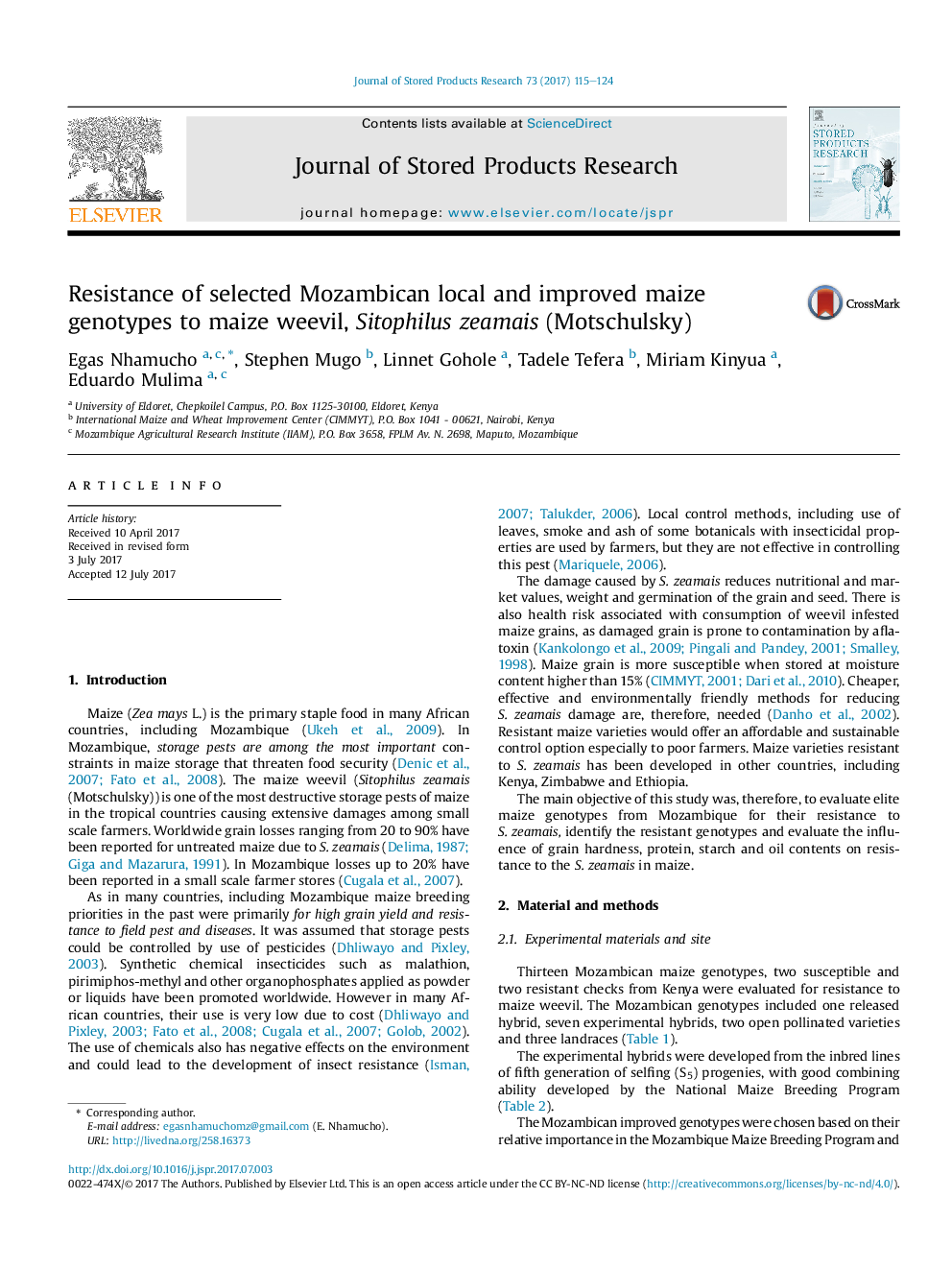| Article ID | Journal | Published Year | Pages | File Type |
|---|---|---|---|---|
| 5762520 | Journal of Stored Products Research | 2017 | 10 Pages |
Abstract
Maize weevil Sitophilus zeamais (Motschulsky) is one of the most important pests of on-farm stored maize in thetropics, particularly where there is no control of moisture content and application of pesticides. This study aimed todetermine the level of resistance among Mozambican maize genotypes against S. zeamais. A total of 17 genotypes,composed of seven experimental hybrids developed from S5 inbred lines from five populations, one released hybrid,two improved open pollinated varieties (OPV), three landraces from Mozambique, two resistant and two susceptiblechecks from Kenya were screened for their resistance to S. zeamais. Four hybrids were screened at their F1 and F2generations. The genotypes were evaluated in the post-harvest laboratory, Kiboko, Kenya in a completely randomizeddesign, replicated 4 times. Data was collected on the number of emerged insects, seed weight loss, seed damage,median development period; and protein, starch and oil contents. The Dobie index of susceptibility was used to groupthe genotypes. Six of the of the eight hybrids at the F1 generation were resistant while two were moderately resistant.Three of the four hybrids evaluated at the F2 generation were moderately resistant while one was susceptible. Two ofthe five OPVs evaluated (EV8430DMRSR and landrace Kandjerendjere) were resistant. Genotypes with high proteincontent showed resistance while those with high starch contents showed susceptibility. Weevils fed on the resistantgenotype produced low number of F1 progeny, had a high median developmental time, caused low seed damage andlow seed weight loss. The resistant genotypes can be either used as cultivars or as sources of resistance in a breedingprogram for weevil resistance.
Related Topics
Life Sciences
Agricultural and Biological Sciences
Agronomy and Crop Science
Authors
Egas Nhamucho, Stephen Mugo, Linnet Gohole, Tadele Tefera, Miriam Kinyua, Eduardo Mulima,
